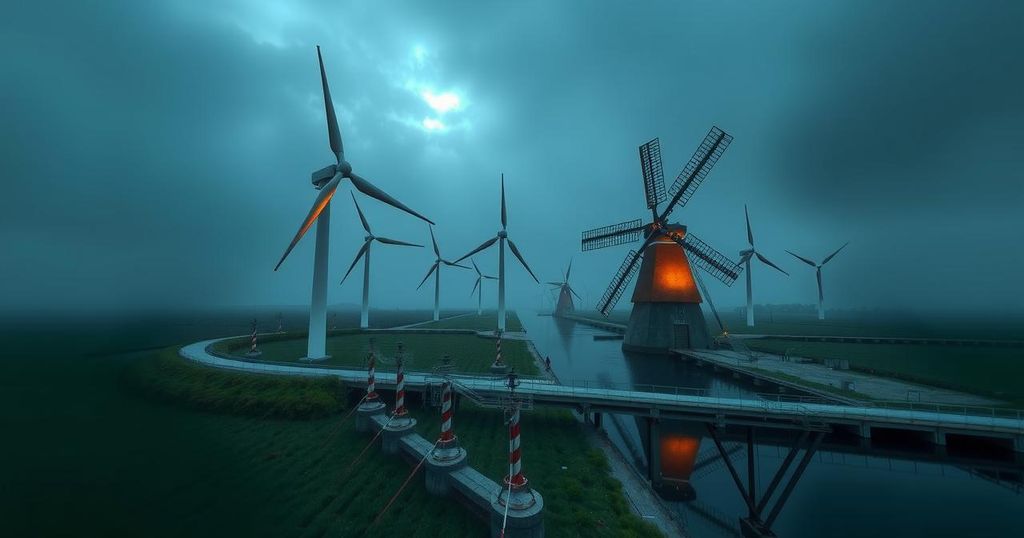Mild weather and increased wind power output have led to a decrease in Dutch and British gas prices, with the Dutch TTF front-month contract reducing to €39.40 and UK weekend contracts falling to 94.90 pence. While there is a forecasted slight increase in gas demand, geopolitical tensions in the Middle East continue to introduce volatility in the energy market.
Recent trends in the energy sector reveal that mild weather conditions, combined with enhanced wind power generation, have led to a notable reduction in gas prices in both the Netherlands and the United Kingdom. This phenomenon is evident as European temperatures soar above average, resulting in diminished demand for gas. Notably, the Dutch Title Transfer Facility (TTF) has seen its front-month contract decrease to €39.40 per megawatt-hour, while weekend contracts in the UK have dropped to 94.90 pence per therm. Additionally, analysts predict a slight increase in gas demand, specifically 88 gigawatt-hours per day, as consumption stabilizes over the upcoming workweek. It is important to note that Norwegian gas exports have experienced a minor decline due to extended maintenance operations. Furthermore, despite a stable gap in pricing between Asian and European markets, which diminishes incentives for U.S. liquefied natural gas (LNG) exporters, ongoing geopolitical tensions—particularly in the Middle East—continue to exert a significant influence on market dynamics, complicating the overall energy landscape.
The current situation surrounding gas prices in Europe is primarily influenced by environmental factors, such as rising temperatures and increased wind energy production. The Dutch TTF hub and UK markets are key trading venues where gas pricing is heavily monitored. Recently, these markets have experienced downward pressure on prices due to decreased demand for gas, influenced by favorable weather and stable power plant consumption levels. However, the broader context is complicated by geopolitical tensions that may affect energy supply and pricing stability, underscoring the interconnected nature of global markets and emphasizing the role of strategic market analysis in investment decisions.
In summary, the combination of mild weather and rising wind power generation has provided a temporary reprieve from gas price volatility in the Dutch and British markets. As the situation continues to unfold, investors are advised to remain vigilant, particularly regarding the interplay between renewable energy prospects and traditional gas consumption. Moreover, the looming geopolitical uncertainties associated with conflicts in the Middle East serve as a crucial reminder of the potential disruptions that can impact global energy stability and market prices.
Original Source: finimize.com






